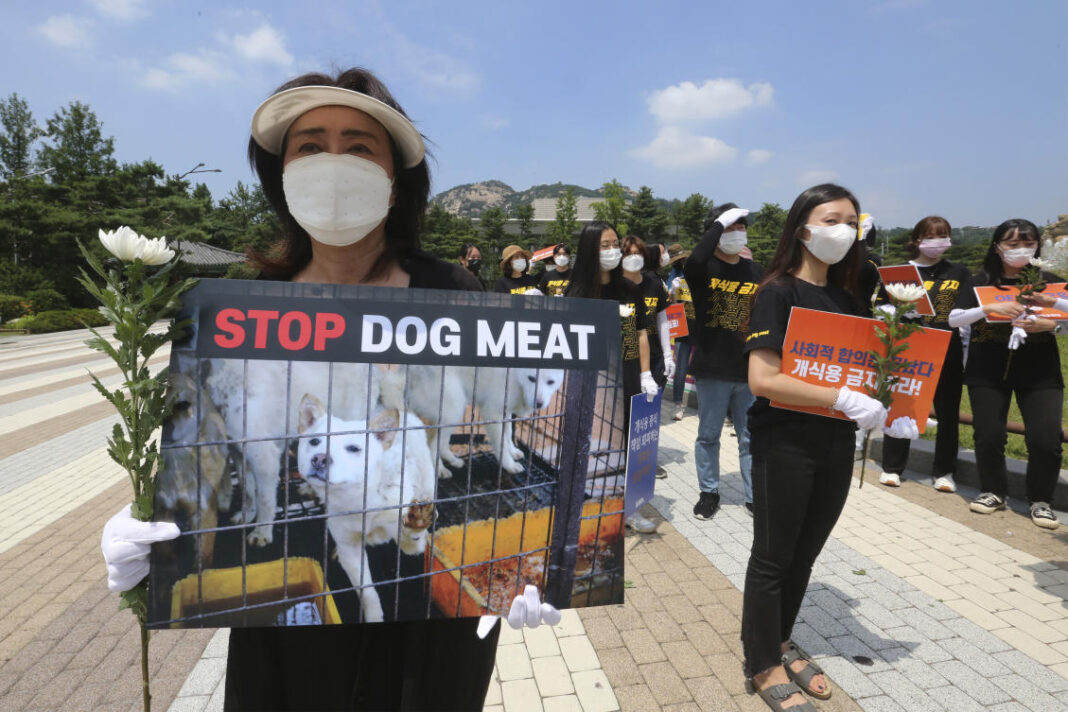SEOUL, South Korea: South Korea on Thursday said it will launch a task force to consider outlawing dog meat consumption after the country’s president offered to look into ending the centuries-old practice.
Restaurants that serve dog meat are dwindling in South Korea as younger people find dog meat a less appetizing dining option and pets are growing in popularity. Recent surveys indicate more people oppose banning dog meat even if many don’t eat it.
In a statement, seven government offices including the Agriculture Ministry said they decided to launch the group comprising officials, civilian experts and people from related organizations to deliver recommendations on possibly outlawing dog meat consumption. It said authorities will gather information on dog farms, restaurants and other facilities while examining public opinion.
The government says the initiative, the first of its kind, doesn’t necessarily guarantee the banning of dog meat. The seemingly vague stance drew quick protests from both dog farmers and animal rights activists.
Farmers say the task force’s launch is nothing but a formality to shut down their farms and dog meat restaurants, while activists argue the government’s announcement lacks resolve to outlaw dog meat consumption.
Ju Yeongbong, secretary general of an association of dog farmers, accused the government of “trampling upon” the people’s right to eat what they want and farmers’ right to live. He said farmers will boycott all government-involved discussions on dog meat in protest.
Lee Won Bok, head of the Korea Association for Animal Protection, called the government’s announcement “very disappointing” because it didn’t include any concrete plans on how to ban dog meat consumption.
“We have deep doubt about whether the government has a resolve to put an end to dog meat consumption,” Lee said.
About 1 million to 1.5 million dogs are killed each year for food in South Korea, a decrease from several millions about 10-20 years ago. Thousands of farmers currently raise a total of about 1 million to 2 million dogs for meat in South Korea, according to Ju’s organization.
Ju said the farmers, mostly poor, elderly people, want the government to temporarily legalize dog meat consumption for about 20 years, with the expectation that demand will gradually taper off. Lee said animal rights organizations want a quicker end of the business.
“South Korea is the only developed country where people eat dogs, an act that is undermining our international image,” Lee said. “Even if the K-pop band BTS and the (Korean drama) Squid Game are ranked No. 1 in the world, foreigners are still associating South Korea with dog meat and the Korean War.”
According to Lee, dogs are consumed as food in North Korea, China and Vietnam as well as in South Korea.
In September, President Moon Jae-in, a dog lover, asked during a meeting with his prime minister “if it’s time to carefully consider” a ban of dog meat consumption, sparking a new debate over the issue.
Dog meat is neither legal nor explicitly banned in South Korea.
South Korea to launch task force on banning dog meat




